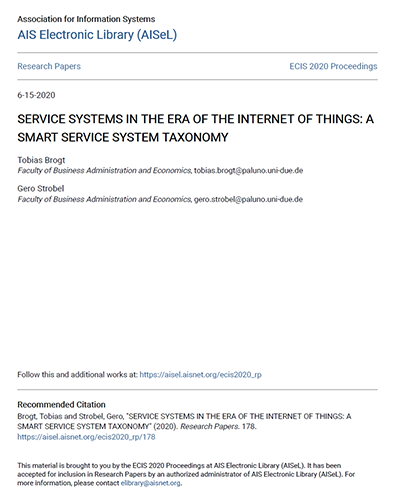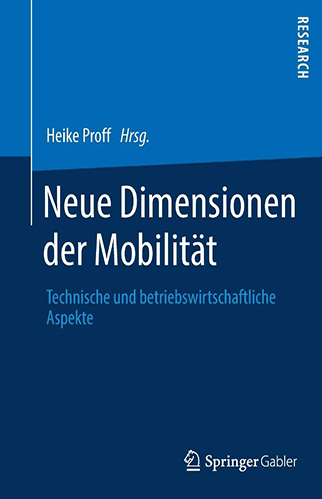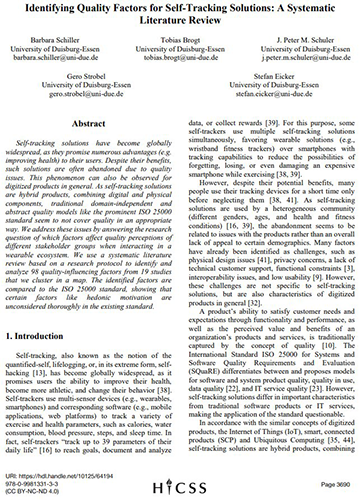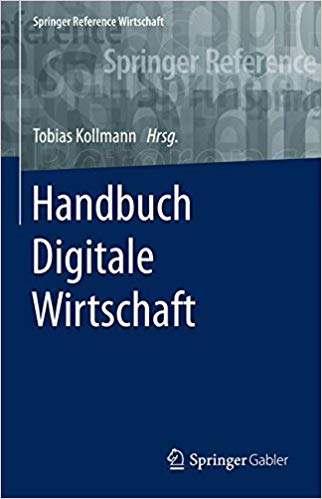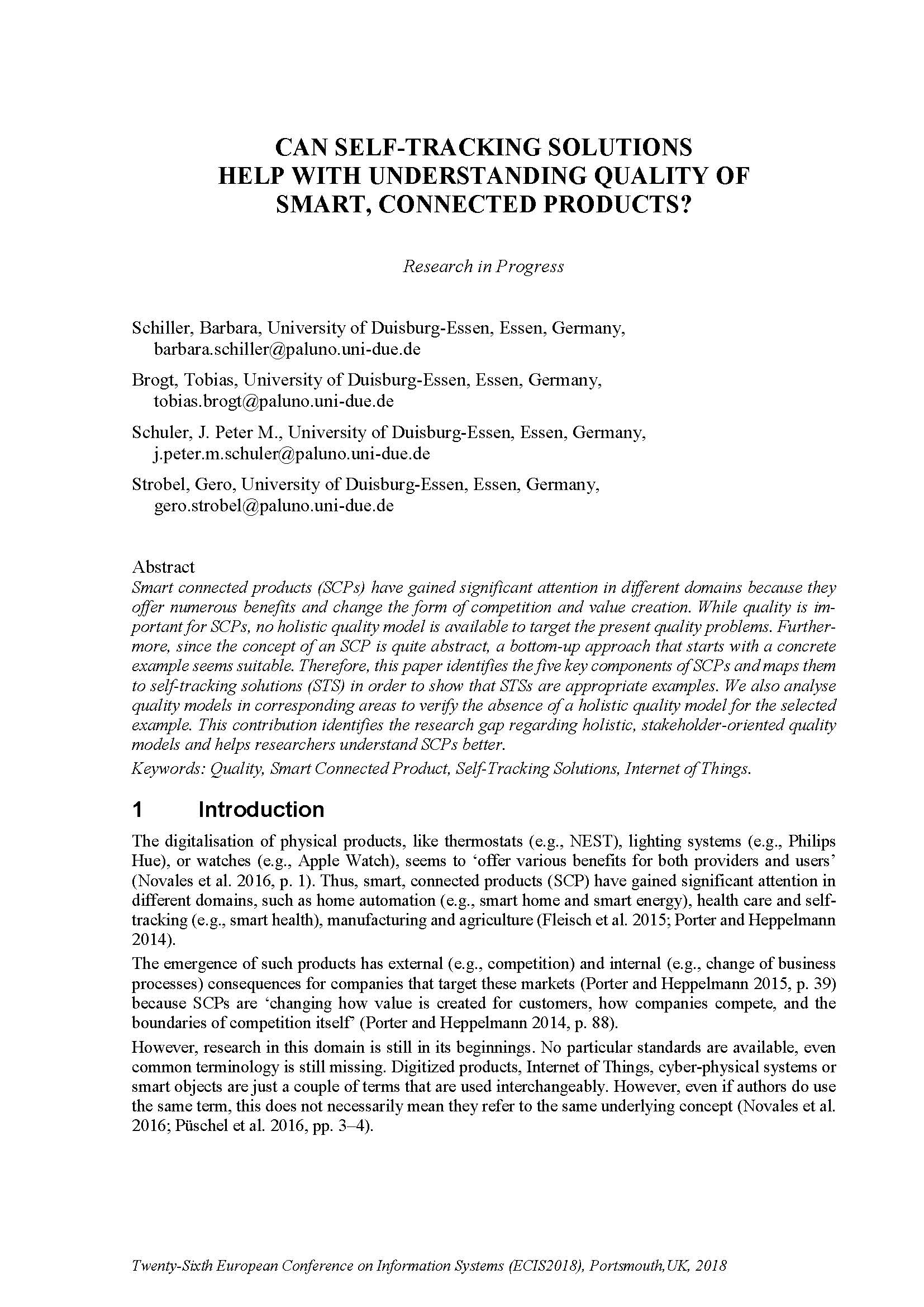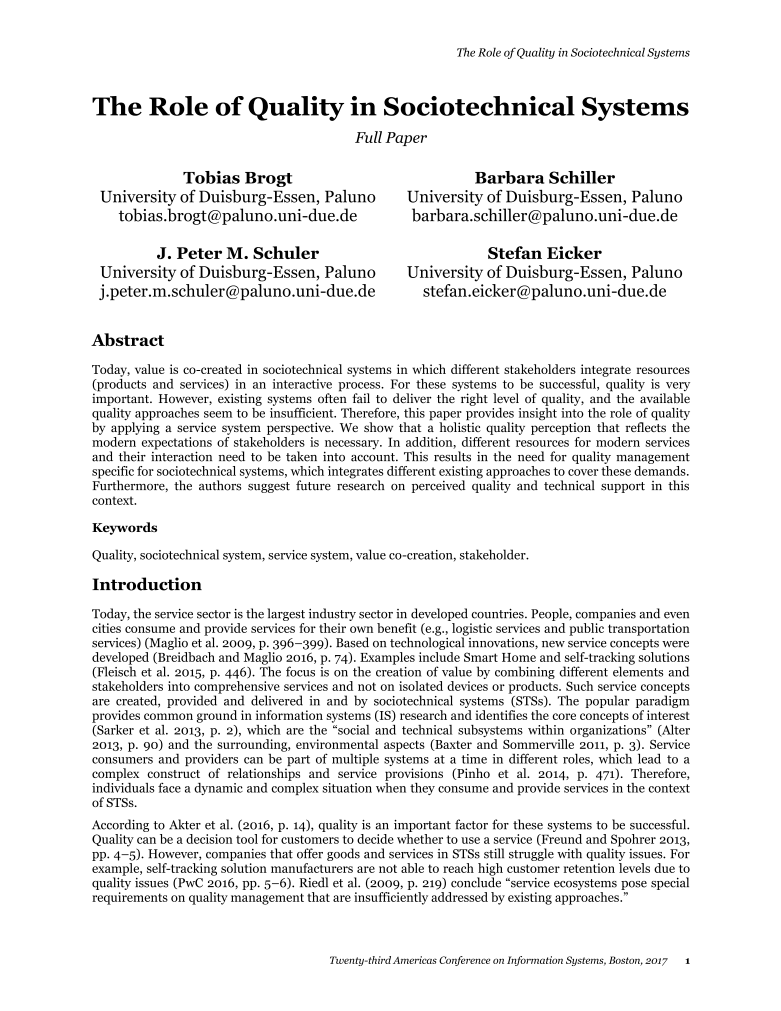Persons

External Ph.D. Student
Tobias Brogt, M. Sc.
- Working Group:
- SOFTEC/Eicker
- Phone:
- +49 201 18-34031
- Email:
- tobias.brogt (at) paluno.uni-due.de
- Consultation Hour:
- Nach Absprach
- Address:
- Universität Duisburg-Essen, Campus Essen
Fakultät für Wirtschaftswissenschaften
Lehrstuhl für Wirtschaftsinformatik und Softwaretechnik
Universitätsstr. 9
45141 Essen
Curriculum Vitae:
- Seit Oktober 2019: Dozent im Masterstudiengang Digital Business Innovation and Transformation (DBIT)
- Seit Oktober 2016: Dozent im Virtuellen Weiterbildungsstudiengang Wirtschaftsinformatik (VAWi)
- Seit August 2015: Software Engineer bei der IT-Objects GmbH
- Seit Dezember 2014: Wissenschaftlicher Mitarbeiter am Lehrstuhl für Wirtschaftsinformatik und Softwaretechnik (Lehrstuhlinhaber: Prof. Dr. Stefan Eicker) an der Universität Duisburg-Essen
- November 2013 - Februar 2014: Auslandssemester an der Siam University (MBA) in Thailand
- Oktober 2008 - Dezember 2014: Studium der Wirtschaftsinformatik (B. Sc. und M. Sc.) an der Universität Duisburg-Essen
Fields of Research:
- Service Systems und Service Systems Engineering
- Vorgehensmodelle
- Smart Connected Products
- Architekturen
Projects:
Entwurf und Entwicklung von smarten Produkten im Forschungsbereich Smarte Produkte
Publications:
- Eicker, Stefan; Strobel, Gero; Brogt, Tobias: Smart Service. In: Kollmann, T.; Kuckertz, A.; Stöckmann, C. (Ed.): Gabler Kompakt-Lexikon Unternehmensgründung. Springer Gabler, Wiesbaden 2021. doi:10.1007/978-3-658-30901-5_19CitationDetails
- Eicker, Stefan; Brogt, Tobias; Strobel, Gero: Smart Product. In: Kollmann, T.; Kuckertz, A.; Stöckmann, C. (Ed.): Gabler Kompakt-Lexikon Unternehmensgründung. Springer Gabler, Wiesbaden 2021. doi:10.1007/978-3-658-30901-5_19CitationDetails
Services are becoming increasingly important, and service systems are seeing the use of service-dominant logic to understand value creation through the integration of active and passive resources. Digital transformation is significantly influencing service systems, and new, smart technologies are enabling innovative value propositions, leading to smart service systems. Smart products, which are a part of the Internet of Things, are the main building blocks of such systems. Attempts have been made to conceptualize smart service systems, but there seems to be no consensus in the literature because, for example, smart products have not been defined in a consistent way. We therefore examine ways to classify smart service systems in terms of their characteristics and attributes. We develop a taxonomy based on a systematic literature review focusing on smart features. Furthermore, an evaluation using domain-specific use cases demonstrates the applicability of the taxonomy. Our contribution combines and extends the available conceptualizations regarding smart service systems to pave the way for the necessary future research.
- Jonasson, Maurizio; Brogt, Tobias: Entwicklung eines Konzepts zur informationssystembasierten Unterstützung intermodaler Mobilitätsansätze. In: Proff, Heike (Ed.): Neue Dimensionen der Mobilität. Springer Gabler, Wiesbaden 2020, p. 515-532. doi:10.1007/978-3-658-29746-6_42Full textCitationDetails
- Schiller, Barbara; Brogt, Tobias; Schuler, J. Peter M.; Strobel, Gero; Eicker, Stefan: Identifying Quality Factors for Self-Tracking Solutions: A Systematic Literature Review. In: Proceedings of the 53nd Hawaii International Conference on System Sciences. Hawaii, USA 2020. doi:10.24251/HICSS.2020.452CitationAbstractDetails
Self-tracking solutions have become globally widespread, as they promise numerous advantages (e.g. improving health) to their users. Despite their benefits, such solutions are often abandoned due to quality issues. This phenomenon can also be observed for digitized products in general. As self-tracking solutions are hybrid products, combining digital and physical components, traditional domain-independent and abstract quality models like the prominent ISO 25000 standard seem to not cover quality in an appropriate way. We address these issues by answering the research question of which factors affect quality perceptions of different stakeholder groups when interacting in a wearable ecosystem. We use a systematic literature review based on a research protocol to identify and analyze 98 quality-influencing factors from 19 studies that we cluster in a map. The identified factors are compared to the ISO 25000 standard, showing that certain factors like hedonic motivation are unconsidered thoroughly in the existing standard.
- Brogt, Tobias; Eicker, Stefan: Einsatz von Servicesystemen zur Umsetzung von Innovationen im Kontext der Digitalisierung. In: Kollmann, Tobias (Ed.): Handbuch Digitale Wirtschaft. Springer Gabler, Wiesbaden 2019. doi:10.1007/978-3-658-17345-6_82-1Full textCitationAbstractDetails
Durch die Digitalisierung befinden sich Unternehmen oftmals in der Umstellung zu digitalen Geschäftsprozessen und Geschäftsmodellen. Dies bietet viele neue Chancen für Innovationen durch den Einsatz neuer Konzepte und Technologien. Um diese Chancen nutzbar zu machen, können Servicesysteme eingesetzt werden. Der Beitrag gibt einen Überblick über dieses Konzept und zeigt auf, wie Servicesysteme charakterisiert und entworfen werden können. Ein Servicesystem stellt ein soziotechnisches System dar, das auf die Unterstützung der gemeinsamen Wertschöpfung abzielt, indem verschiedene interne und externe Ressourcen integriert und kombiniert werden. Der Entwurf erfolgt im Rahmen des Service Systems Engineerings in meist agilen Prozessen mit dem Ziel einer frühen Markterprobung. Dabei kann der Innovationsgedanke explizit berücksichtigt werden. Vorhandene Entwurfsansätze sind jedoch meist abstrakt und daher weniger für den konkreten Entwurf geeignet. Es können daher wesentliche Faktoren identifiziert werden, die die Entwicklung von Servicesystemen beeinflussen. Der Beitrag schafft einen Überblick über den aktuellen Stand der Forschung und zeigt Ansatzpunkte für eine Verbesserung der Nutzbarmachung des Konzeptes Servicesystem.
Smart connected products (SCPs) have gained significant attention in different domains because they offer numerous benefits and change the way of competition and value creation. While quality is im-portant for SCPs, no holistic quality model is available to target the present quality problems. Further-more, since the concept of an SCP is quite abstract, a bottom-up approach that starts with a concrete example seems suitable. Therefore, this paper identifies the five key components of SCPs and maps them to self-tracking solutions (STS) in order to show that STSs are suitable substitutes. We also analyse quality models in corresponding areas to verify the absence of a holistic quality model for the selected example. This contribution identifies the research gap regarding holistic, stakeholder-oriented quality models and helps researchers understand SCPs better.
Today, value is co-created in sociotechnical systems in which different stakeholders integrate resources (products and services) in an interactive process. For these systems to be successful, quality is very important. However, existing systems often fail to deliver the right level of quality, and the available quality approaches seem to be insufficient. Therefore, this paper provides insight into the role of quality by applying a service system perspective. We show that a holistic quality perception that reflects the modern expectations of stakeholders is necessary. In addition, different resources for modern services and their interaction need to be taken into account. This results in the need for quality management specific for sociotechnical systems, which integrates different existing approaches to cover these demands. Furthermore, the authors suggest future research on perceived quality and technical support in this context.
Talks:
- Brogt, Tobias; Strobel, Gero: Can Self-Tracking Solutions Help with Understanding Quality of Smart, Connected Products?, 26th European Conference on Information Systems (ECIS), 26.06.2018, Portsmouth, England. Details
- Brogt, Tobias: The Role of Quality in Sociotechnical Systems , 23rd Americas Conference on Information Systems (AMCIS), 10.08.2017, Boston. USA. Details
Courses:
- Fortgeschrittene Programmierkonzepte (Konzeption und Dozent der Vorlesung seit dem Wintersemester 2014/2015)
- Paradigmen und Konzepte der Softwareentwicklung (Konzeption und Dozent der Vorlesung seit dem Sommersemester 2015)
- Betreuung von Studienprojekten mit externen Kooperationspartner (seit dem Wintersemester 2015/2016)
- Betreuung von Seminararbeiten (seit dem Sommersemester 2017)
Tutored Theses:
- Telework in Organisations: Development of a Framework for Distributed Working (Bachelor Thesis Business Information Systems, 2021)
- Analysis of the Effects of Architectures on the Security in the Internet of Things (Bachelor Thesis Business Information Systems, 2021)
- Analysis of the Innovation Potential of IoT Platforms in the Automotive Industry (Bachelor Thesis Business Information Systems, 2021)
- Design of a Procedure for the Modernisation of Long-term Software Development Projects (Master Thesis Business Information Systems, 2020)
- Architectures for Smart Products: Development of an Approach Based on the Identification and Analysis of Existing Concepts (Master Thesis Business Information Systems, 2020)
- Implementation of Managed Services: Conception of a Framework to Support Corporate Decision Making (Master Thesis Business Information Systems, 2020)
- Development of a Concept for the Support of the Patient Transport Organisation (Bachelor Thesis Business Information Systems, 2020)
- Identification and Analysis of Design Processes for Smart Products (Master Thesis Business Information Systems, 2020)
- Prototypical Conception of a Universal Smart Home Apllication (Bachelor Thesis Business Information Systems, 2019)
- Development of an Information System-based Concept for Supporting Intermodal Mobility (Master Thesis Business Information Systems, 2019)
- Implementation of Smart Services for Payments: Identification of Requirements and Challenges (Bachelor Thesis Business Information Systems, 2019)
- Development of a Comparative Framework for Categorizing and Evaluating Cryptocurrencies Based on their Functional and Technological Charakteristics (Master Thesis Business Information Systems, 2019)
- Implementation of Continous Integration: Description of the Approach and Identifikation of Challenges (Bachelor Thesis Business Information Systems, 2018)
- Evaluation of Platform Independent Development Approaches for Mobile Applications (Master Thesis Business Information Systems, 2018)
- Application of Artifical Neural Networks for Data Preprocessing on Decentral Gateways for Internet of Things Architectures (Master Thesis Business Information Systems, 2018)
- Conceptualizing a Workflow-based Music Production Software in the Home Studio Sector (Master Thesis Business Information Systems, 2018)
- Analysis of selected concepts of Modern Software Development (Bachelor Thesis Business Information Systems, 2018)
- Analysis of the Potential of Using DevOps und Cloud Computing Together (Bachelor Thesis Business Information Systems, 2018)
- Evaluation of Process Models for Software Development in the Context of Digitalization (Bachelor Thesis Business Information Systems, 2018)
- Blockchain application possibilities and application risks in the web 3.0 (Bachelor Thesis Business Information Systems, 2018)
- An Analysis of the Suitability of Container Technology to Manage the Complexity Between Applications and Operating Systems in Information Systems (Master Thesis Business Information Systems, 2018)
- Security in Smart Home Systems: Analysis and Comparison of Communication Standards (Bachelor Thesis Business Information Systems, 2018)
- Analysis of Selected Frameworks for Scaling Scrum in Software Development Projects (Bachelor Thesis Business Administration, 2018)
- Development of a Model to Determine the Level of Digitalization of Service Companies (Master Thesis Business Information Systems, 2018)
- Mobile App Portfolio Management: Analysis of the Practical Application Using a Case Study (Bachelor Thesis Business Information Systems, 2018)
- Evaluation of Hybrid Process Models for Software Engineering (Bachelor Thesis Business Information Systems, 2018)
- Analyse der Kombinationsmöglichkeiten von klassischen und agilen Projektmanagementansätzen zur erfolgreichen Durchführung von IT‐Projekten (Master Thesis Business Information Systems, 2018)
- Analysis of the impact on the Collaboration Between Development and IT-Operations by Using Containers and Microservices (Bachelor Thesis Business Information Systems, 2018)
- Development of a List of Criteria to EValuate the Risk Potential of IT Project Portfolios (Bachelor Thesis Business Information Systems, 2018)
- Analysis of the impact of Modern Concepts on Quality in Software Engineering (Bachelor Thesis Business Information Systems, 2018)
- Smart Home in New Buildings: Analysis and Evaluation of Available Standards (Bachelor Thesis Business Information Systems, 2018)
- Cryptocurrencies as an Alternative Payment Method: Identification of Opportunities ans Risks (Bachelor Thesis Business Information Systems, 2018)
- Identification of potenital applications for the blockchain technology in different domains (Bachelor Thesis Business Information Systems, 2018)
- Developing Software for the Internet of Things - An Evaluation of Software Development Models and their Quality Assurance Capabilities (Master Thesis Business Information Systems, 2018)
- Improving Service Delivery through the Use of Service Systems: Identifying Integration Requirements and Challenges (Master Thesis Business Information Systems, 2018)
- Development of an approach for the introduction and management of crwodsourcing for software development projects (Master Thesis Business Information Systems, 2017)
- Konzeption und Implementierung einer Datenintegration für ein cloudbasiertes Projektmanagement‐System in einem mittelständischen IT‐Unternehmen (Master Thesis Business Information Systems, 2017)
- Providing Mobile Content in a Company Context with Progressive Web Apps: Analysis of Potentials and Challenges (Bachelor Thesis Business Information Systems, 2017)
- Analysis of the Application of Software Development Concepts in agile Software Development (Bachelor Thesis Business Information Systems, 2017)
- Software Development Concepts in the Field of DevOps: Analysis of the impact on Software Product Quality (Bachelor Thesis Business Information Systems, 2017)
- Development of a Hybrid Process Model - Combining Plan Driven and Agile Advantages (Master Thesis Business Information Systems, 2017)
- Analysis of the application potentials of business information systems methods for the design of cyber-physical systems (Bachelor Thesis Business Information Systems, 2017)
- Analysis of the impact of the DevOps-approach on agile software development methods (Bachelor Thesis Business Information Systems, 2017)
- Development of recommendations to consider co-creation and digitalization in automotive industry services by the example of car sharing (Bachelor Thesis Business Information Systems, 2017)
- Analysis of Requirements for Quality Management in the Context of Industry 4.0 (Bachelor Thesis Business Information Systems, 2017)
- Identification of strategic success factors for enterprises in the period of Industry 4.0 (Bachelor Thesis Business Information Systems, 2017)
- Development of action recommendations for the service-oriented transformation of production-oriented companies (Bachelor Thesis Business Information Systems, 2017)
- Service Systems in digital transformation: Development of action recommendations for production-oriented companies (Bachelor Thesis Business Information Systems, 2017)
- Identification of consequences of the use of Open Innovation in Service Systems Engineering (Bachelor Thesis Business Information Systems, 2017)
- Identification of potential benefits of big data application for value co-creation in service systems (Bachelor Thesis Business Information Systems, 2017)
- An Approach for quality improvement of services in the context of service engineering through big data by the example of social media (Bachelor Thesis Business Information Systems, 2016)
- Identification of support potential for service orientated business models in service systems (Bachelor Thesis Business Information Systems, 2016)
- Creating the foundations for the development of a consistent logic and language for service systems (Bachelor Thesis Business Information Systems, 2016)
- An analysis of automation potential in maintenance and operation of information systems through the application of knowledge-based systems (Bachelor Thesis Business Information Systems, 2016)
Academic Duties:
- Dozent beim Connect Workshop im Sommersemester 2016
- Mitarbeit an der Web-Content-Management-Lösung der Fakultät "WIWI-chairT3"

